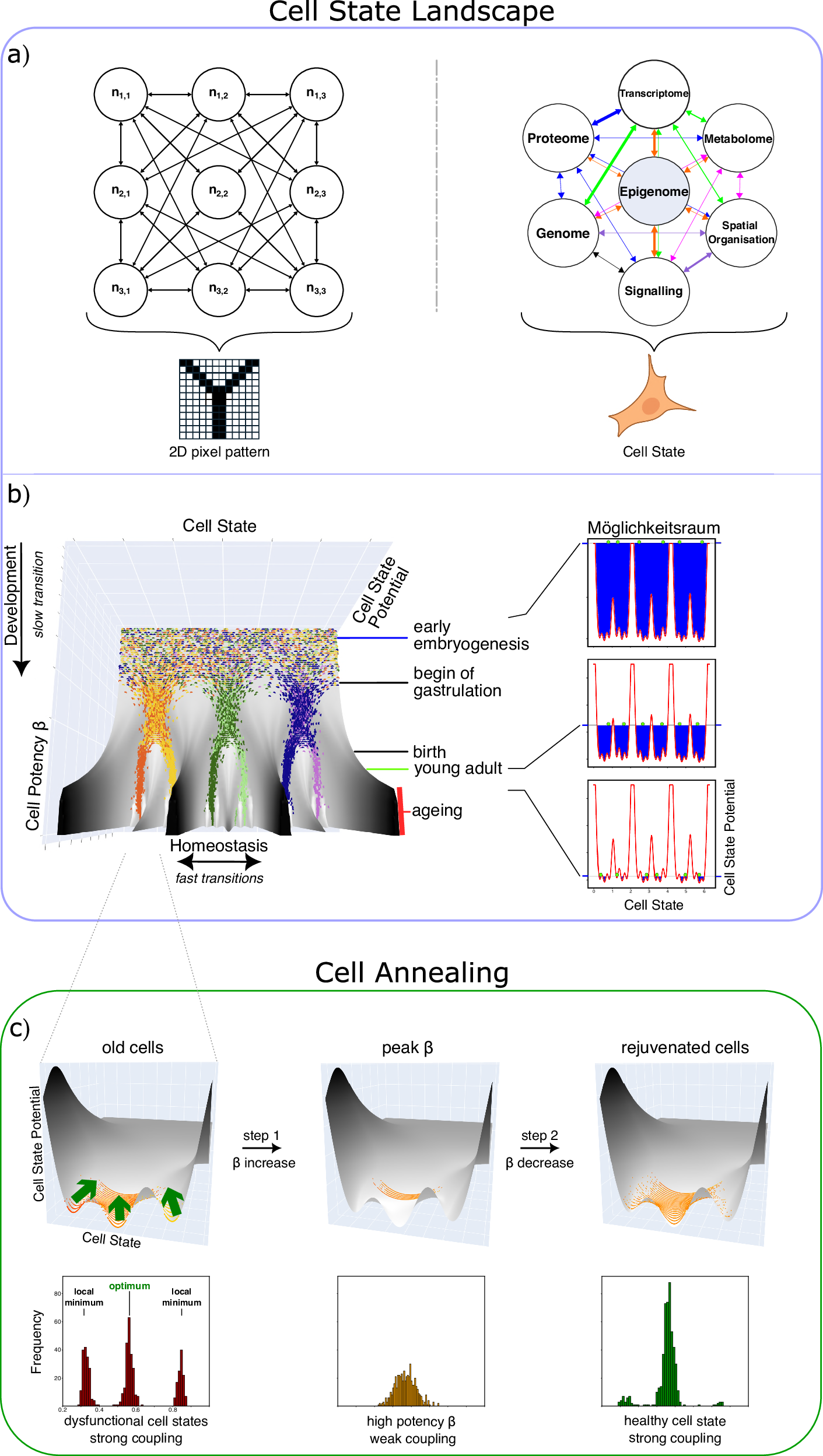Phenomenological 'Cell Annealing' Model Offers New Framework for Cellular Rejuvenation

Researchers have introduced a novel scientific model, dubbed "Cell Annealing," designed to deepen the understanding of cellular aging and rejuvenation processes. Announced by "Dr Singularity" on social media, this phenomenological model provides a fresh perspective on how cell states are maintained, stabilized, and potentially restored to a more youthful condition. The research, published in Cell Research in July 2025, proposes a new framework for developing future therapies targeting age-related diseases.
The "Cell Annealing" model conceptualizes cell types and states as points within a high-dimensional "Cell State Landscape." Within this landscape, cells navigate through development, aging, and reprogramming by descending into "valleys" that represent stable cellular configurations. According to the model, as cells age, their "Cell Potency β" declines, leading them to become trapped in suboptimal local minima within this landscape, which manifests as diminished cellular function.
Inspired by the material science process of annealing, where heating metals restores their properties, the model suggests a similar mechanism for biological cells. A moderate, transient increase in "Potency β" could enable aged, unhealthy cells to escape these suboptimal states and return to optimal, youthful configurations. Crucially, this process aims to achieve rejuvenation without necessarily requiring complete dedifferentiation, preserving cell identity.
Authored by Sebastian Memczak, Juan Carlos Izpisua Belmonte, and Thore Graepel from Altos Labs, the "Cell Annealing" framework suggests a potentially universal approach to reversing age-related phenotypes. This theoretical advancement could simplify the complex challenge of developing interventions for aging. The researchers anticipate that this model will guide the development of new therapeutic strategies for both cellular and organismal aging and associated diseases.